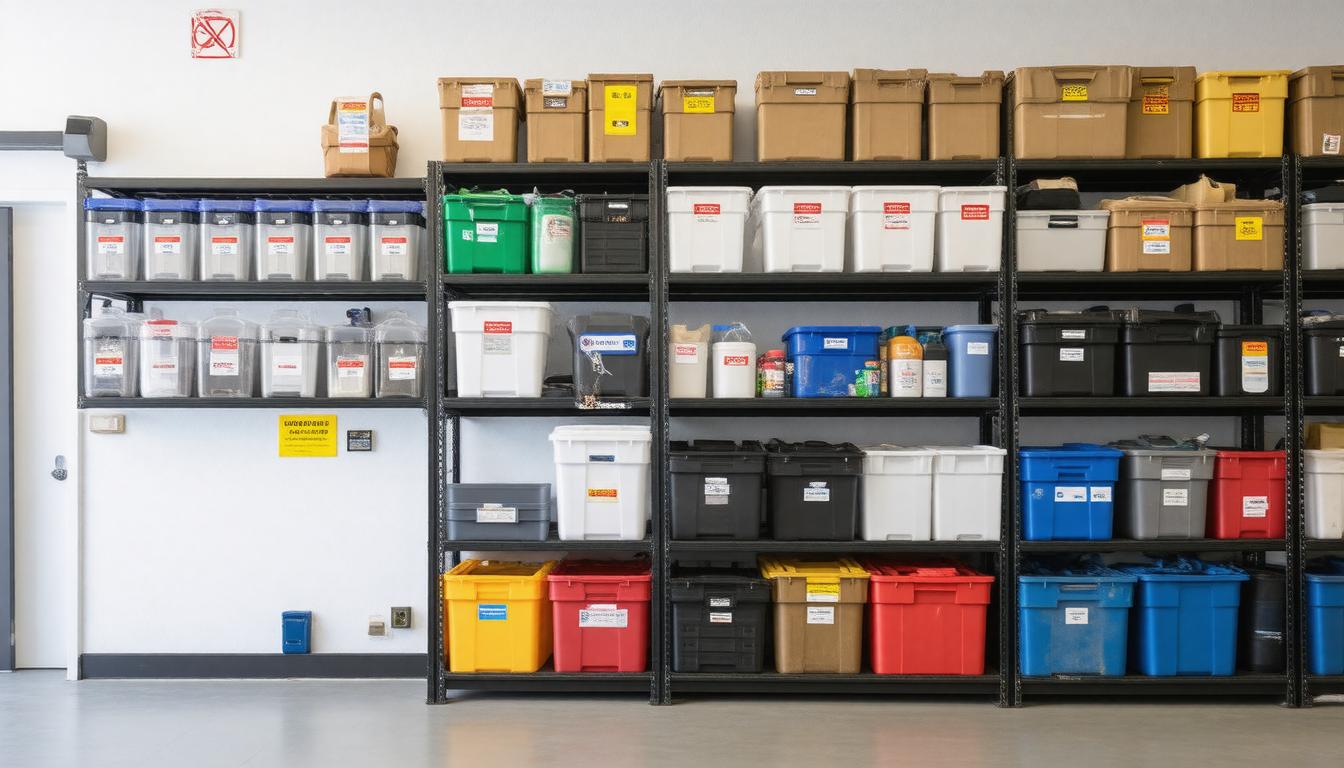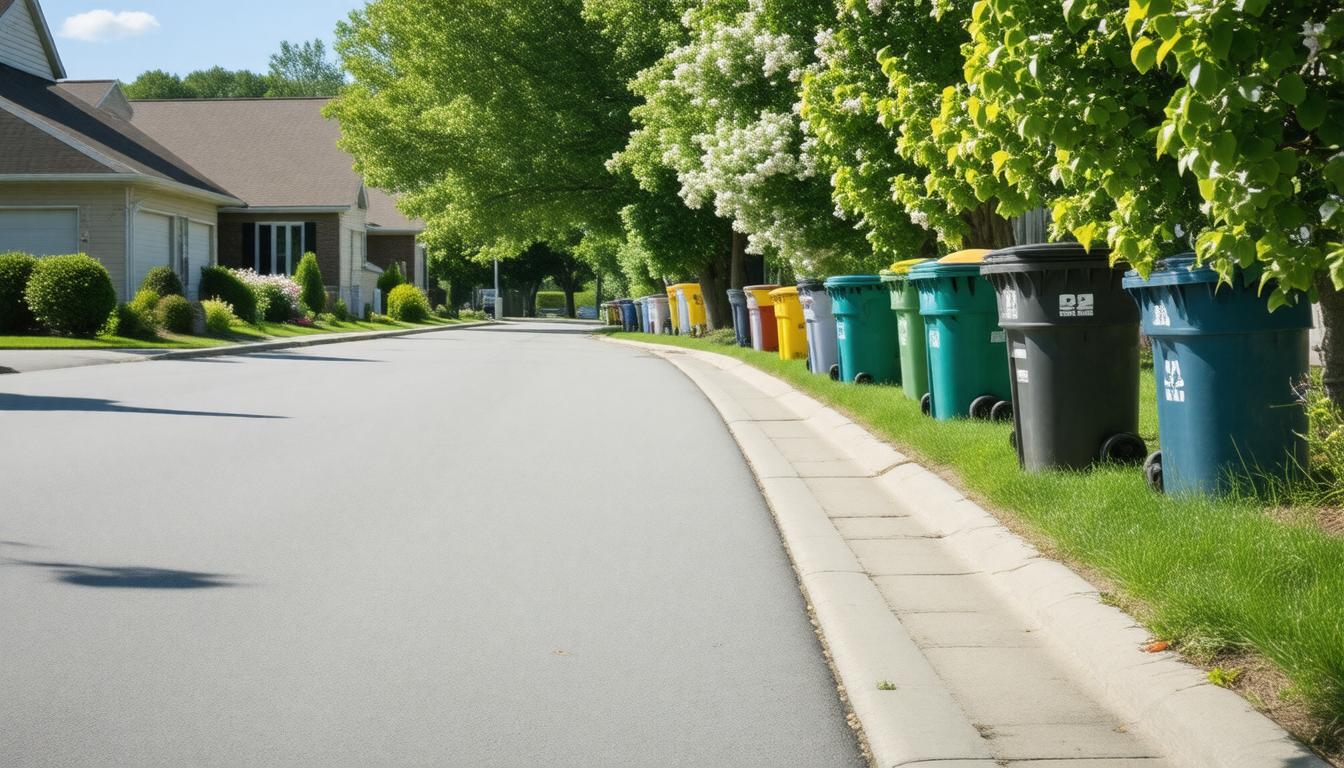When you think about managing your household waste, it might seem like just a routine chore—something you do without much thought. But have you ever considered how vital these services are for our health and environment? Proper waste management isn’t just about tossing out trash; it’s about ensuring our communities stay clean and sustainable for future generations. From regular curbside pickup to recycling programs, understanding the options available can make a huge difference. In this article, we’ll explore the ins and outs of residential waste services, looking at how they function and their impact on both our neighborhoods and the broader environment.
Residential waste services involve the regular collection and disposal of household waste, essential for maintaining community health and cleanliness. These services promote sustainability by offering recycling options, bulk item removal, and yard waste collection, thus reducing environmental impact and fostering shared responsibility within communities.
Overview of Residential Waste Services
Residential waste services are critical for maintaining the health of individuals and the overall well-being of our communities. One cornerstone of these services is regular curbside garbage pickup. This essential service ensures that household waste is collected efficiently, preventing unsightly clutter and potential health risks. Scheduled weekly, this routine helps keep neighborhoods clean and free from harmful waste build-up. Regular trash collection mitigates pest attraction and odor, contributing significantly to an inviting living environment.
In fact, Americans produce approximately 4.4 pounds of waste per person each day, according to data from the Environmental Protection Agency. That amounts to a staggering quantity of refuse when multiplied across different households in a community. Without dedicated services like curbside collection, managing this waste would quickly become unmanageable.
Beyond just garbage pickup, many residential waste services have expanded to include recycling options as a way to promote sustainability and environmental responsibility. Households can recycle glass, paper, plastics, and metals, ensuring recyclable materials do not end up in landfills. For example, Tiger Sanitation has implemented specialized recycling programs that make it easy for residents to sort and manage their recyclables effectively. This not only aids in reducing waste but also supports local recycling efforts that foster sustainable practices.
Moreover, larger households or those undertaking renovations often require more specialized services, which is where bulk item removal comes into play.
Bulk item removal is designed for larger items like appliances or furniture that cannot be easily disposed of in regular trash bins. Such items can pose significant storage challenges if not managed properly; thus, having access to bulk pick-up services alleviates these concerns while promoting neatness and cleanliness throughout communities. Typically offered on designated days or through reservation systems—like those provided by Tiger Sanitation—this service offers flexibility and convenience tailored to individual needs.
Additionally, seasonal yard waste collection encourages homeowners to maintain their properties through regular disposal of organic materials such as leaves, branches, and grass clippings. During peak seasons like spring or fall when gardening and landscaping are frequent activities, designated yard waste services help prevent debris accumulation, keeping neighborhoods aesthetically pleasing and environmentally responsible.
These diverse service offerings underscore how integrated residential waste management shapes our collective sense of responsibility toward our community and environment.
Collection Methods and Procedures
Effective waste management begins with knowledge of how trash is collected and what residents need to know about their services. One of the primary methods is weekly curbside pickup. This means that each week, residents set their garbage and recyclables out in designated bins at the curb for the collection truck to pick up. Not only does this method keep neighborhoods looking tidy, but it also plays a crucial role in maintaining community health and sanitation.
It’s important to pay attention to local guidelines regarding what items can be disposed of in each bin; for example, some areas may require separate bins for glass, paper, metals, and plastics.
Regularly reviewing these guidelines can prevent contamination of recyclable materials—a common hiccup that many households face. By sticking to the instructions provided by your local service provider, like Tiger Sanitation, you can help ensure that your items are properly recycled instead of ending up in a landfill.
In addition to routine curbside pickups, another critical aspect of waste management is dealing with bulk items.
Bulk item removal comes into play when you have larger items that can’t fit in your regular trash bins—think old furniture or broken appliances. With services like Tiger Sanitation, residents must schedule these pickups separately. This not only ensures that larger waste items are handled appropriately but also helps the environment by encouraging proper recycling methods for these materials.
It’s worth noting that improper disposal of bulky items can lead to legal fines or penalties, so taking advantage of bulk item removal services is highly encouraged.
This attention to detail extends to how waste is managed after collection. For instance, once your garbage is picked up, it doesn’t just disappear. It’s taken to facilities where sorting occurs and recyclable materials are separated from non-recyclables. Having efficient systems in place ensures that as much material as possible is diverted from landfills—and this process reinforces community sustainability goals. Initiatives like these highlight how waste management not only benefits individual households but also fosters a sense of communal responsibility towards the environment.
Familiarizing yourself with both scheduling and disposal techniques paves the way for active participation in these vital services while nurturing a cleaner and healthier environment for all community members. As we navigate through these responsibilities, we can explore more targeted initiatives centered around recycling practices designed for maximum efficiency.
Comprehensive Recycling Programs
Recycling is not just a buzzword; it’s a necessity in our modern world, especially in the realm of waste management. An essential feature of comprehensive recycling programs is the categorization of recyclables. These programs collect materials that represent a significant portion of household waste, where every bit counts. Proper disposal helps save our environment and fosters a cleaner community.
Types of Recyclables
- Glass: Often discarded bottles and jars can be transformed instead of tossed out.
- Paper: From newspapers to cardboard boxes, paper recycling reduces deforestation.
- Plastics: Many types of plastics are recyclable, especially items marked with recycle symbols #1 (PETE) and #2 (HDPE).
- Metals: Aluminum cans from beverages are always welcome in recycling bins and can be recycled infinitely without losing quality.
The convenience of these categories cannot be overstated. Many municipalities offer single-stream recycling, allowing residents to toss all recyclables into one bin without sorting them. This simplified approach drastically boosts participation rates in recycling initiatives.
According to a resident of San Antonio, “The introduction of single-stream recycling has made the process so much easier, and I no longer have to sort items at home.” This quote illustrates the tangible benefits that can encourage more residents to engage with sustainable practices.
While many materials are accepted for recycling, it’s important to recognize that some waste should be handled with care. Understanding how to appropriately manage these substances is vital for maintaining a safe community.
Managing Hazardous Materials Safely

Handling hazardous materials isn’t just about safety; it’s a crucial aspect of protecting both our health and the environment. Just think about the various items in your home that fall into this category—batteries, pesticides, paints, and electronics. The very things that help us operate our everyday lives can pose serious risks if not managed properly. For example, improperly disposed batteries can leak toxic chemicals into soil and waterways, causing long-lasting environmental damage.
Types of Hazardous Waste
Knowing what constitutes hazardous waste is the first step toward safe management. Hazardous waste includes household items like old paint cans, which may release volatile organic compounds (VOCs) when opened; pesticides that can harm beneficial insects and contaminate local ecosystems; and electronics like old computers or phones that contain harmful substances such as lead and mercury. Identifying these materials in your home is essential to reducing risk.
Now that we’ve pinpointed what we should be cautious about, let’s explore how to manage these items safely.
Safe Disposal Methods
Many waste services offer designated drop-off events specifically for hazardous waste disposal. This means you have a reliable option readily available for disposing of those unwanted materials without feeling guilty about harming the environment. These events are typically organized either monthly or quarterly by most community service providers, including Tiger Sanitation.
It’s always worth checking your service provider’s schedule for these events to ensure you’re disposing of hazardous waste correctly and responsibly.
If you miss an event—or perhaps you can’t wait—you might find that some waste management companies also provide curbside pickup for hazardous materials at scheduled times. This added convenience shows a commitment to sustainability and making responsible disposal as easy as tossing out your regular trash.
Whenever possible, read labels carefully for disposal instructions before discarding anything suspicious. Certain products come with guidelines on how to dispose of them safely, which can save you time and trouble down the line.
By mastering these important details, you can take personal responsibility while contributing to a larger movement aimed at community well-being and environmental sustainability. This knowledge empowers you to facilitate effective waste management while ensuring a cleaner, healthier environment for everyone around you.
Sustainable Waste Practices at Home

Sustainability in waste management begins at home with conscious efforts. Each small choice we make has the potential to contribute significantly to our community and environment. One of the best places to start is by embracing the three Rs: Reduce, Reuse, and Recycle. These principles serve as a foundation for minimizing our waste footprint while fostering a culture of responsibility.
Reduce, Reuse, Recycle
Reducing waste generation is the first step toward responsible living. Consider your purchasing habits: by choosing durable products over disposable ones, you naturally cut down on what you throw away. But it doesn’t stop there; reusing items whenever possible is equally vital. For instance, glass jars can repurpose as food storage or creative decoration, while old clothes can be transformed into cleaning rags, extending their life cycle. Finally, recycling materials correctly is essential; familiarize yourself with local guidelines since mistakenly tossing non-recyclables can contaminate entire batches.
Ponder this: According to the EPA, composting can divert up to 30% of waste that normally ends up in landfills. This practice enriches your garden and reduces greenhouse gas emissions from decomposing organic matter.
Mindful Purchasing
Another impactful practice is mindful purchasing. When selecting products, aim for those with minimal or recyclable packaging. In every shopping trip, think of yourself as casting a vote for a greener planet—each choice pushes industries toward more sustainable practices and promotes market demand for eco-friendly products.
It’s also worth sharing any resources or insights you stumble upon about sustainable brands with friends and family, creating a ripple effect that encourages informed purchasing decisions within your community.
Having established sustainable waste practices at home, the next important step is understanding how to select a service provider that aligns with these eco-conscious initiatives.
Selecting a Reliable Service Provider
The process of choosing the right waste management service for your home may seem overwhelming, but with a few guiding criteria in mind, you can simplify your decision-making.
First and foremost, consider the range of services offered. A good provider will offer standard curbside garbage pickup and additional services such as recycling options for glass, paper, plastics, and metals. Many households have bulk items that occasionally need removal—be sure to check if your prospective provider includes this service.
Once you have reviewed available services, it’s crucial to examine the environmental initiatives employed by the company. For instance, some companies prioritize sustainability by encouraging recycling and implementing practices that reduce landfill contributions. This commitment not only benefits the environment but often results in more efficient waste disposal methods that reduce community impact.
Next on your checklist should be the evaluation of customer reviews and testimonials. Prospective customers often share their experiences and insights about the reliability and quality of service they received. Positive feedback—not just on the company’s website but from third-party review platforms—can serve as invaluable indicators of a provider’s track record.
Moreover, reading through customer comments about specific experiences can spotlight areas where they shine or where they fall short.
Additionally, pricing and contract terms are significant aspects to consider when deciding on a waste management service. While upfront costs are important, transparency in pricing structures is equally vital. Look for hidden fees or unclear contract terms that might catch you off guard later. Ensure you’re receiving fair pricing for the services offered by comparing multiple providers.
As an example, Tiger Sanitation stands out for its comprehensive service offerings alongside its strong emphasis on sustainable practices. A long-time customer from South Central Texas shared her experience: “Their commitment to sustainability and customer satisfaction is unmatched.” Testimonials like this illustrate how reliable providers are committed not just to doing business but also to building relationships with their clients.
Ultimately, selecting a reliable waste management provider involves assessing various factors including their scope of services, environmental efforts, customer feedback, and pricing transparency.
By taking these considerations into account, you ensure effective waste disposal for your household while contributing positively to your community’s health and sustainability efforts.
In summary, making informed decisions about your waste management provider helps foster both personal convenience and collective responsibility towards a cleaner environment.




